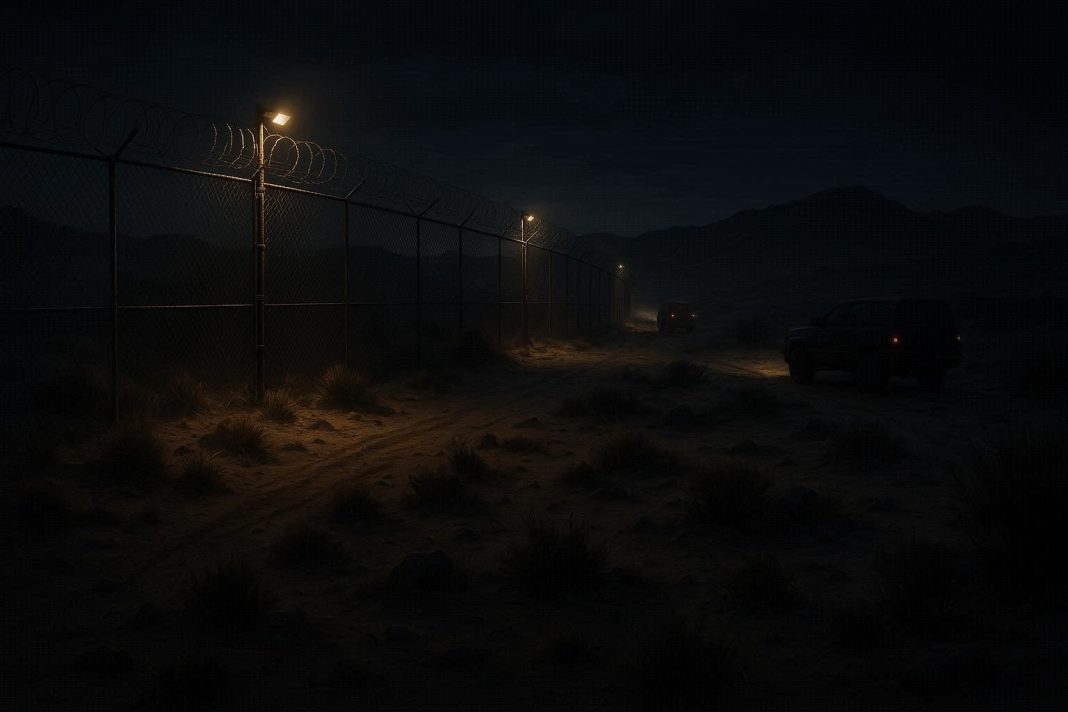In a rare and secretive interview, an alleged member of the Sinaloa Cartel admitted that the Trump administration’s border crackdown has made smuggling operations more difficult.
Sinaloa Cartel Operative Speaks Out in Rare Interview
The interview featured the man fully dressed in black—mask, sunglasses, gloves, and a hat—to completely conceal his identity. When asked if former President Donald Trump’s actions had made his job harder, the Sinaloa Cartel operative immediately agreed. “Oh yeah,” he replied.
According to the operative, the group has had to adjust its methods due to tougher conditions at the U.S.-Mexico border. He revealed that migrants who once paid $6,500 to cross now face a much higher price. Reports confirm that the fee has climbed to around $10,000. This increase reflects the rising risks and extra steps needed to move people across the heavily guarded border.
DEA Atlanta takes bold step to disrupt Mexican cartel networks
During the conversation, the man admitted to being involved in killings and coordinating smuggling missions. Despite his confessions, he claimed he still sees himself as a “good person” because, in his words, “I did what I had to do.” He explained that he chose to speak publicly to discourage others from joining cartels, warning that once someone becomes part of such groups, escape is nearly impossible. “It’s not a life. It’s not good,” he said.
Sinaloa Cartel Faces Higher Costs for Human Smuggling at the Border
The Sinaloa Cartel, one of the most powerful criminal groups in the world, has long been involved in drug trafficking and human smuggling. But according to reports, the heightened security measures introduced under Trump forced smugglers to take greater risks, driving up costs for migrants.
Migrants desperate to cross into the United States now face steeper financial burdens. What used to cost thousands already has nearly doubled in just a few years. Experts point out that these changes make smuggling operations more lucrative for the Sinaloa Cartel, even though the work is more dangerous.
Fox News highlighted that human smuggling fees went from about $6,500 to $10,000 after the start of the Trump administration. Cartels have adapted by making migrants pay more while still ensuring their passage.
At the same time, the Sinaloa Cartel has not stopped recruiting new people to help with their operations. With tougher border restrictions in place, criminal groups increasingly use creative methods to find help, including tapping into social media platforms like Snapchat, TikTok, and Facebook.
Social Media Used to Lure U.S. Citizens Into Cartel Work
Reports have also revealed how the Sinaloa Cartel is recruiting ordinary Americans to take part in smuggling operations. A young woman from Arizona shared how she was contacted through Snapchat with a tempting offer. She was promised between $5,000 and $10,000 in a single day if she helped transport migrants for the Sinaloa Cartel.
The 20-year-old single mother explained that the financial pressure made her accept the proposal. Even though she did not own a car or hold a driver’s license, she convinced a friend to drive her south to pick up migrants and bring them back north. That very night, she received the promised payment.
Over time, she became more involved, coordinating the smuggling of nearly 100 migrants by copying and posting the same recruiting message she had first received. She also helped the cartel find new drivers by spreading the word on social media.
DEA arrests 617 people in nationwide operation targeting Sinaloa Cartel networks
According to her account, Sinaloa Cartel members closely monitored her activities. When authorities arrested drivers, they instructed her to erase any evidence from her phone. She never knew exactly who ran the operations, but experts believe the group she worked for belonged to the Sinaloa Cartel.
Months later, authorities arrested her, and a court sentenced her to prison for her role in human smuggling. Her story shows how easily young Americans facing financial struggles can be drawn into dangerous criminal networks through social media.
The reports together reveal how the Sinaloa Cartel continues to operate despite obstacles. Tougher border rules under Trump raised the stakes for smugglers, but also increased the money they collect. At the same time, cartels have found new ways to recruit, exploiting online platforms to pull in unsuspecting U.S. citizens looking for fast cash.

